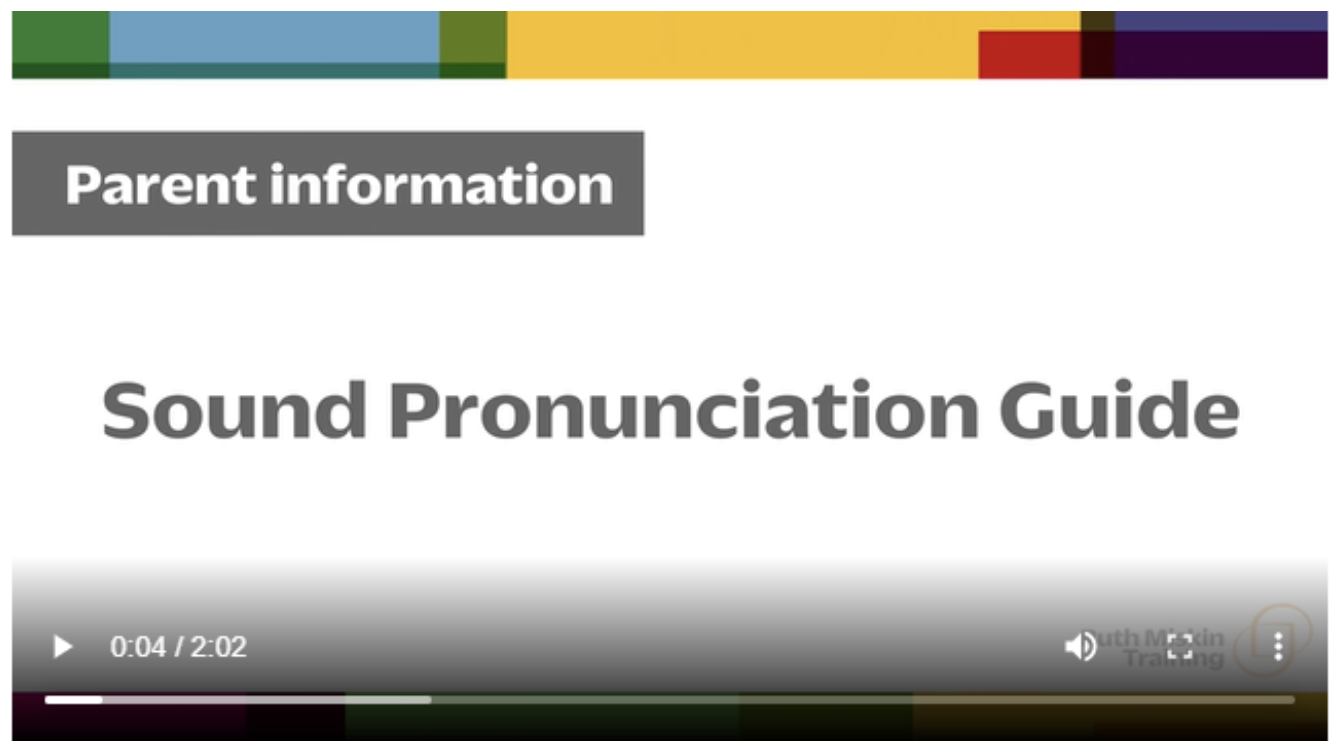Phonics
Read Write Inc. Phonics at Oakfield
At Oakfield Primary School we are committed to following the highly effective and efficient phonics-based literacy programme, Read Write Inc., to get children reading and writing quickly – and loving it! Establishing a genuine love of reading and writing in our youngest children and developing this enthusiasm as they move through school, lies at the very heart of what we do every day.
RWI was developed by Ruth Miskin and more information on this can be found at https://www.ruthmiskin.com/
How will RWI be taught?
All children are assessed regularly by our RWI teachers so they work with children at the same level. This allows complete participation in lessons.
Five key principles underpin the teaching in all Read Write Inc. sessions:
Purpose – know the purpose of every activity and share it with the children, so they know the one thing they should be thinking about
Participation – ensure every child participates throughout the lesson. Partnership work is fundamental to learning
Praise – ensure children are praised for effort and learning, not ability
Pace – teach at an effective pace and devote every moment to teaching and learning
Passion – be passionate about teaching so children can be engaged emotionally

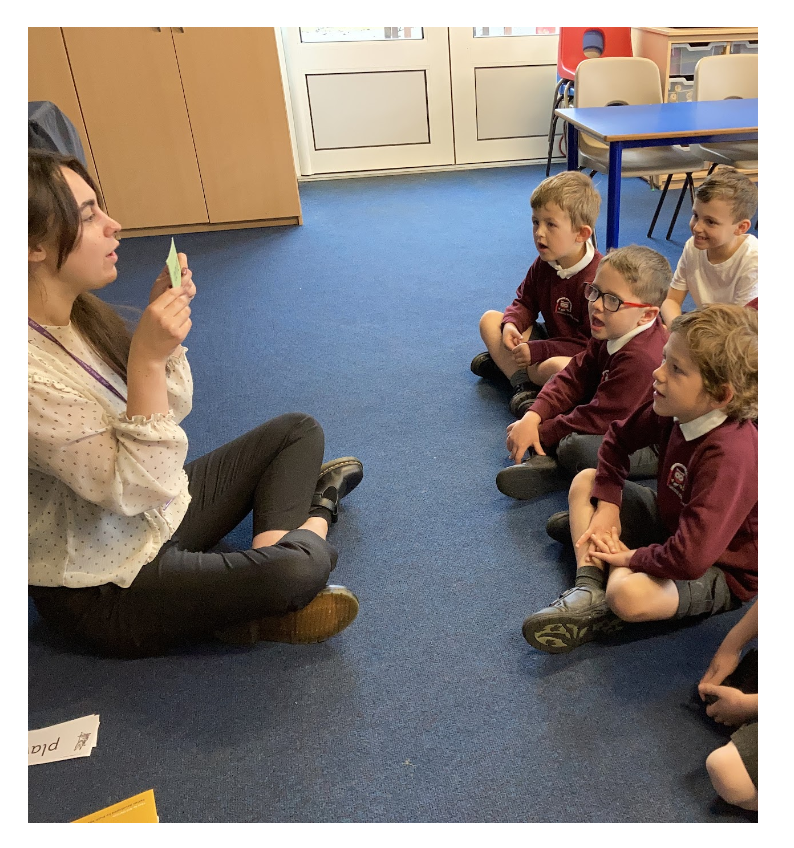
The English lead regularly monitors teaching and learning, in addition to assessing every child’s progress at least once every six weeks. Assessment is used throughout the programme to quickly identify the needs of all children, so that specific, targeted intervention can take place, within a timely manner.
Year R
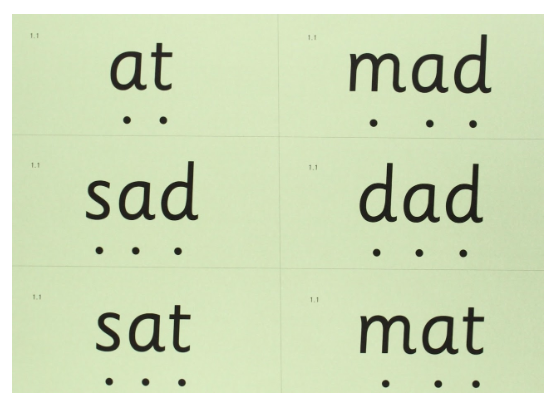
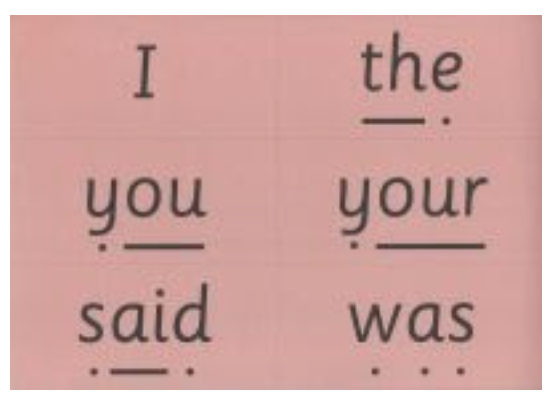
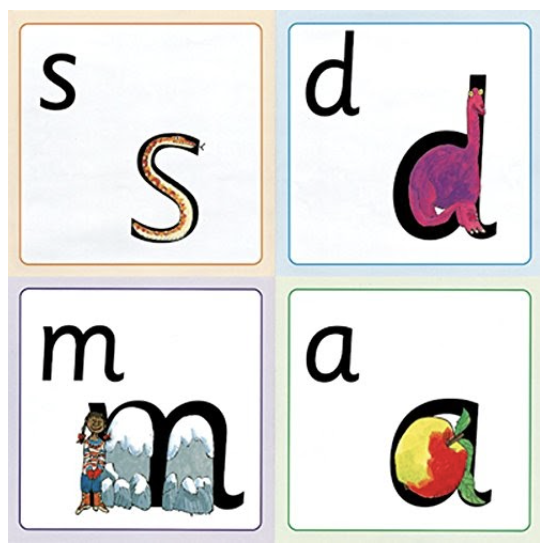
In Reception all children will learn how to ‘read’ the sounds in words and how those sounds can be written down.
Reading
The children:
-
learn 44 sounds and the corresponding letters/letter groups using simple picture prompts – see below
-
learn to read words using Fred talk and sound blending
-
read from a range of storybooks and non-fictions books matched to their phonic knowledge
-
work well with partners
-
develop comprehension skills in stories by answering 'Find It' and 'Prove It' discussion questions
Writing
The children:
-
learn to write and form the letters/letter groups which represent the 44 sounds with the help of fun phrases
-
learn to write words by using Fred Talk
-
learn to build sentences by practising sentences out loud before they write
Read Write Inc. Phonics through the day: Fred Talk and pinny time
The teaching of sounds is kept to the phonics lessons to let children enjoy the integrity of each experience. However, there are two important things to do throughout the day to help teach all children to read sounds and learn to blend quickly:
1. Use Fred Talk and play Fred Talk games
2. Pinny time.
Fred Talk + Speedy Sounds = reading
Fred Talk and Fred Talk games
Speaking like Fred helps children to understand that words are made up of sounds. Teachers and teaching assistants will use Fred Talk throughout the day to help children practise blending sounds together. Fred Talk follows a consistent routine:
1. Say the word in sounds as Fred, e.g. c-a-t. Ask children to repeat. Pause to allow children to ‘jump-in’ with the whole word.
2. Say the word in sounds followed by the whole word, e.g. c-a-t, cat. Ask children to repeat.
• Use Fred Talk for single-syllable words at the end of sentences throughout the day e.g. it is time for l-u-n-ch … lunch, come and sit on the f-l-oor … floor.
• Fred Talk words at the end of the sentence and keep the words short and simple.
Pinny time
Pinny time helps children to practise reading the sounds taught so far speedily and to make sure children ‘keep up, not catch up’.
• Each teacher/AT has their own apron or ‘pinny’ with pockets containing a set of Speed Sounds Cards.
• 5-minute pinny time sessions are timetabled throughout the day. Children who need to increase their speed are targeted.
Year 1
Children continue with the Read, Write Inc. programme but will work on complex sounds and read books appropriate to their reading level. Daily sessions of RWI phonics last for 45 minutes. Children are assessed regularly and regrouped according to their reading stage. A second Speed Sound lesson takes place in the afternoon to build the children's speed and fluency in reading and applying their known sounds through real and alien words. Pinny time also continues for children with sound gaps and 1:1 tutoring takes place during the afternoon for the lowest 20% of readers.
The phonics screening check is in June of Year 1. The children are familiarised with the format through an assessment in November, February and April.
Year 2
Children will continue on the programme until they are assessed as reading at a speed of at least 90wpm. This will usually be around the end of the Autumn Term. Pinny time also continues for children with sound gaps and 1:1 tutoring takes place during the afternoon for the lowest 20% of readers.
The children who did not pass the Phonics Screening Check will get the chance to take it again in June.
We always welcome the support and contributions of our parents and carers – and there is a lot you can do to help your child develop vital early literacy skills and set them up as passionate, lifelong readers and writers.

